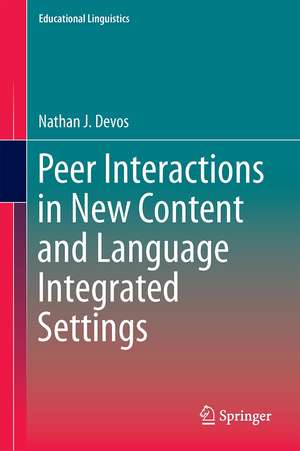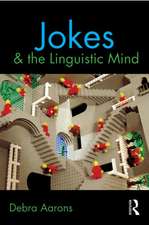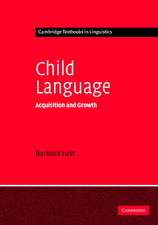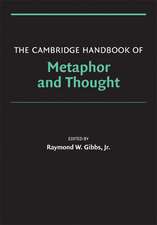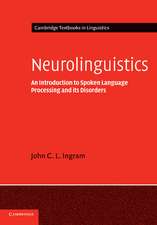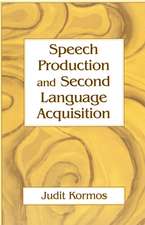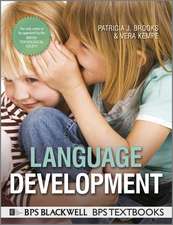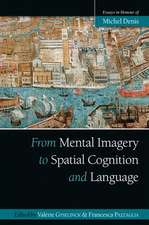Peer Interactions in New Content and Language Integrated Settings: Educational Linguistics, cartea 24
Autor Nathan J. Devosen Limba Engleză Hardback – 13 noi 2015
| Toate formatele și edițiile | Preț | Express |
|---|---|---|
| Paperback (1) | 386.22 lei 6-8 săpt. | |
| Springer International Publishing – 23 aug 2016 | 386.22 lei 6-8 săpt. | |
| Hardback (1) | 393.52 lei 6-8 săpt. | |
| Springer International Publishing – 13 noi 2015 | 393.52 lei 6-8 săpt. |
Din seria Educational Linguistics
- 18%
 Preț: 959.98 lei
Preț: 959.98 lei - 15%
 Preț: 644.95 lei
Preț: 644.95 lei - 20%
 Preț: 495.48 lei
Preț: 495.48 lei - 18%
 Preț: 952.26 lei
Preț: 952.26 lei - 15%
 Preț: 649.87 lei
Preț: 649.87 lei - 18%
 Preț: 888.18 lei
Preț: 888.18 lei - 15%
 Preț: 644.95 lei
Preț: 644.95 lei - 15%
 Preț: 636.80 lei
Preț: 636.80 lei - 15%
 Preț: 634.49 lei
Preț: 634.49 lei - 20%
 Preț: 555.52 lei
Preț: 555.52 lei - 18%
 Preț: 940.72 lei
Preț: 940.72 lei - 20%
 Preț: 563.96 lei
Preț: 563.96 lei - 15%
 Preț: 638.57 lei
Preț: 638.57 lei - 20%
 Preț: 568.43 lei
Preț: 568.43 lei - 15%
 Preț: 642.83 lei
Preț: 642.83 lei - 15%
 Preț: 643.48 lei
Preț: 643.48 lei - 18%
 Preț: 899.52 lei
Preț: 899.52 lei - 15%
 Preț: 638.76 lei
Preț: 638.76 lei - 15%
 Preț: 649.06 lei
Preț: 649.06 lei - 15%
 Preț: 643.65 lei
Preț: 643.65 lei -
 Preț: 390.08 lei
Preț: 390.08 lei - 15%
 Preț: 645.28 lei
Preț: 645.28 lei - 15%
 Preț: 649.39 lei
Preț: 649.39 lei -
 Preț: 392.75 lei
Preț: 392.75 lei - 18%
 Preț: 897.65 lei
Preț: 897.65 lei -
 Preț: 393.13 lei
Preț: 393.13 lei - 18%
 Preț: 728.28 lei
Preț: 728.28 lei - 15%
 Preț: 638.43 lei
Preț: 638.43 lei - 18%
 Preț: 1113.39 lei
Preț: 1113.39 lei
Preț: 393.52 lei
Nou
Puncte Express: 590
Preț estimativ în valută:
75.31€ • 77.80$ • 62.68£
75.31€ • 77.80$ • 62.68£
Carte tipărită la comandă
Livrare economică 25 martie-08 aprilie
Preluare comenzi: 021 569.72.76
Specificații
ISBN-13: 9783319222189
ISBN-10: 331922218X
Pagini: 244
Ilustrații: XVII, 244 p.
Dimensiuni: 155 x 235 x 22 mm
Greutate: 0.54 kg
Ediția:1st ed. 2016
Editura: Springer International Publishing
Colecția Springer
Seria Educational Linguistics
Locul publicării:Cham, Switzerland
ISBN-10: 331922218X
Pagini: 244
Ilustrații: XVII, 244 p.
Dimensiuni: 155 x 235 x 22 mm
Greutate: 0.54 kg
Ediția:1st ed. 2016
Editura: Springer International Publishing
Colecția Springer
Seria Educational Linguistics
Locul publicării:Cham, Switzerland
Public țintă
ResearchCuprins
Acknowledgement.- Introduction.- Part I: New Perspectives on CLIL.- 1. Development of CLIL into Diverse Contexts.- 2. A New Perspective on Integrating Physical Education and Language Learning.- 3. Exploring Social Interaction as a Resource in CLIL.- 4. Uncovering Peer Interactions as a Resource for Learning.- 5. Investigating Peer Interactions in CLIL Contexts.- Part II: Case Study.- 6. Identifying Foreign Language Use in Peer Interactions.- 7. Learners Helping Learners: Peer Scaffolding.- 8. Learners Regulating Linguistic and Cognitive Behavior.- 9. Learners Practicing and Playing with the Foreign Language.- Part III: Implications and Applications.- 10. Pedagogical Implications.- 11. Conclusion.- Appendix.- Subject Index.
Textul de pe ultima copertă
Trade schools, universities, and programs for international students have begun to experiment with Content and Language Integrated Learning (CLIL) as a viable pedagogy for instruction, as the pedagogy of CLIL increasingly gains recognition as a practical form of language and content education in Europe and beyond, and its application in instructional settings becomes more diverse. Corresponding with CLIL’s growth, this book focuses on foreign language use during peer interactions in a new CLIL setting. It particularly concentrates on how to conduct research when the focus is on learner interactions. The theoretical background, research methods, and research instruments are explained in a brief and understandable manner. This book is intended for those interested in CLIL and peer interactions and includes a framework and ideas for investigating new CLIL contexts in a practical manner allowing undergraduate and graduate students to conduct their own research in these settings.
Caracteristici
Offers theoretical background, research methods and research instruments for research with a focus on learner interaction Explores current theories of language learning, including sociocultural theory, activity theory, identity approach and more Presents unique insights into language play and its potential for foreign language learning
